Will Daytona Beach bars get metal detectors and stricter rules? Here's the latest
DAYTONA BEACH - Absurd. Insane. No way.
That's what a few Daytona Beach bar owners had to say about a city government proposal to impose stricter rules on nightclubs that stay open past midnight.
The mandates could include having metal detectors at entrances, requiring scanners or card readers to check customers' identification, limiting the size of patrons' bags or purses, and requiring security guards in parking lots.
An emergency ordinance that could have put those mandates and others into effect this month had been tentatively scheduled for a vote at the Daytona Beach City Commission's Sept. 6 meeting. The measure didn't make it onto the agenda that night. There was an expectation it would get a vote at the commission's next meeting on Wednesday night.
Now it's been delayed further. City Manager Deric Feacher said the city's police leadership has been tied up with the trial of the man accused of killing Daytona Beach Officer Jason Raynor in 2021.
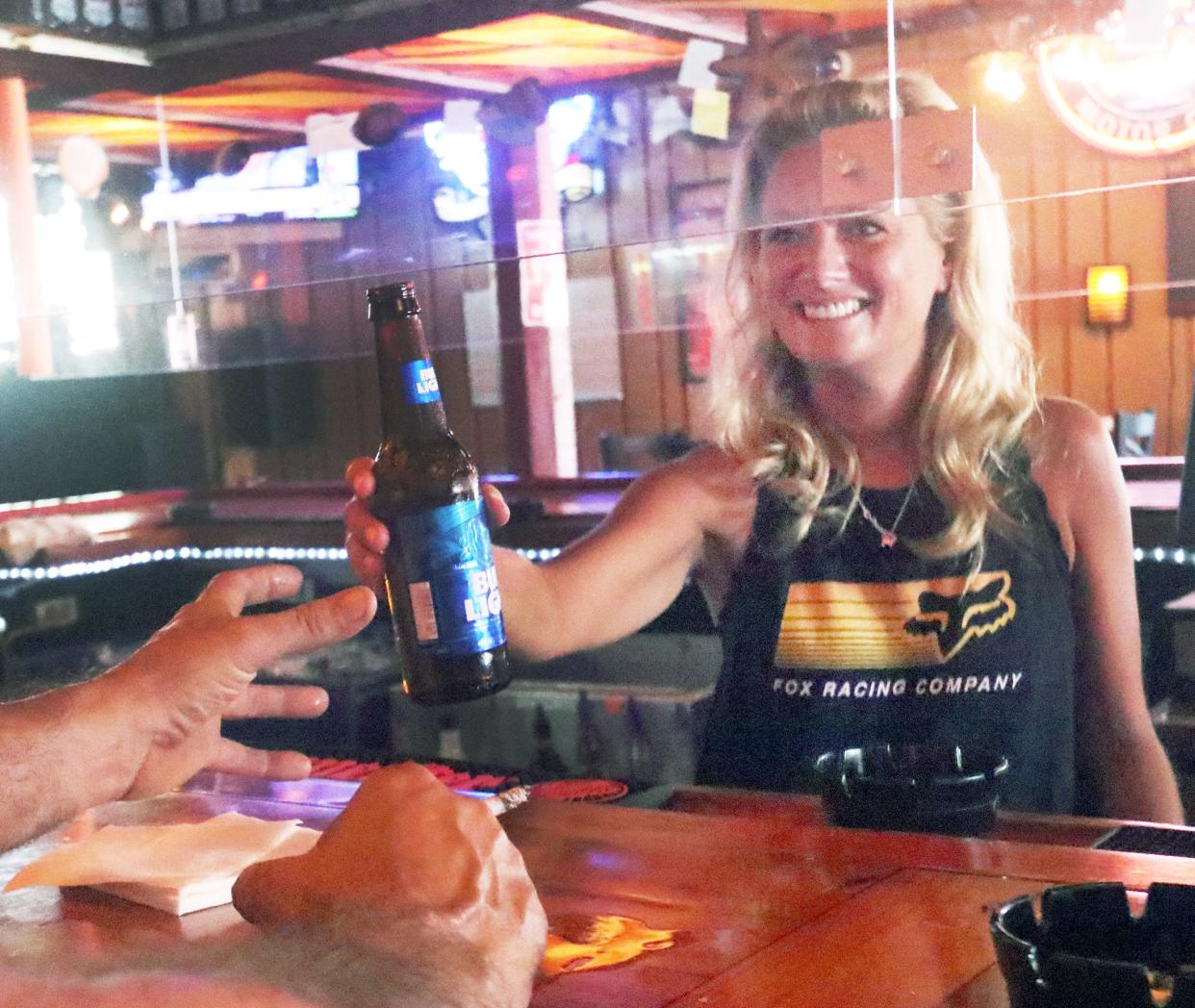
No bar rule proposals "will be brought to the elected officials until staff have discussions with local bar owners who this might affect," Feacher wrote Wednesday in a text message to the News-Journal. "Nothing is changing, and when/if something is presented to change, we will make sure to afford all parties an opportunity to come into compliance."
If the ordinance that was being drafted the past few weeks does get teed up for city commissioners to discuss and vote on, bar owners will have plenty to say.
"It sounds like they're stepping on some rights of bar owners," said Randall Phillips, owner of the Tir na nog Irish Pub on East International Speedway Boulevard.
"Do I have to get a lawyer now to say you guys are discriminating against us?" asked Bobby Honeycutt, owner of Froggy's Saloon on Main Street.
If what's been recently discussed for bars becomes local law, "it will definitely be a problem," said Rick Kitt, owner of several Seabreeze Boulevard businesses including Daytona Taproom, The Joint, and Daytona Pizza & Wing Co.
"They push us to become villains because it hurts us to follow the rules," Honeycutt said.
What sparked the Daytona bar crackdown?
When city officials discussed the emergency ordinance at a meeting a month ago, they said it would spell out requirements for any bar with an extended-hours permit to stay open and serve alcoholic beverages between 12 a.m. and 2 a.m.
Restaurants would not be impacted if the new parameters are adopted, they said. The tougher rules would only target businesses that make at least 50% of their revenue from alcohol.
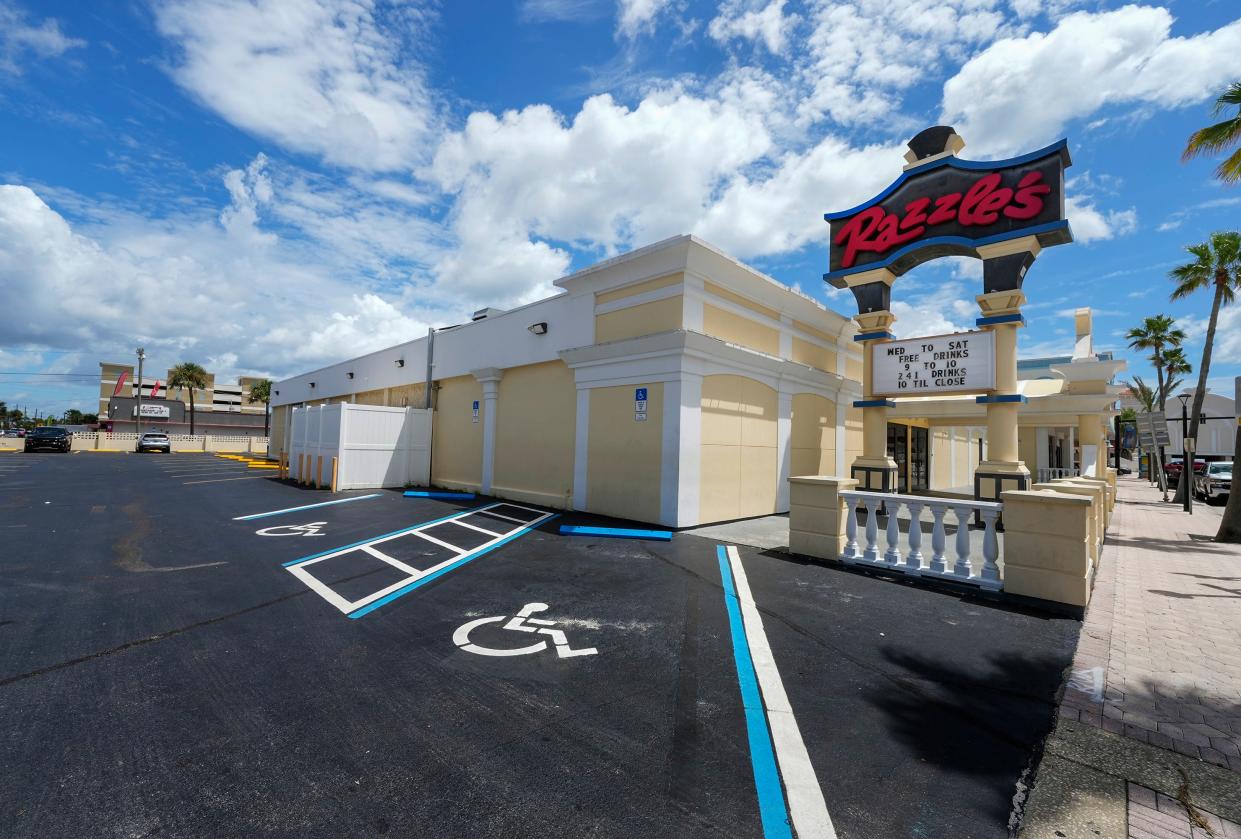
Some Daytona Beach bar owners say they don't know how they could come up with tens of thousands of dollars to buy metal detectors and pay security guards.
They also feel like they're being unfairly punished for problems at a small handful of Seabreeze Boulevard bars, including Razzle's.
In late July, a woman was arrested on charges of opening fire on four people in Razzle's parking lot. Police say the woman had been inside Razzle's before the shooting, and they believe she had a gun in her purse when she was inside the club.
About two weeks later, in mid-August, police say an inebriated 17-year-old girl drove into four people in that same parking lot.
No one was critically injured in either incident, but on Aug. 12 the police chief suspended the permit that allows Razzle's to stay open and serve alcoholic drinks between midnight and 2 a.m. Four days later, Razzle's was allowed to reopen, but it had a list of new rules imposed on it to regain use of that after-hours permit.
Razzle's new restrictions include limiting the size of bags or purses to 5 inches by 9 inches by 2 inches; banning backpacks; requiring metal detectors at entrances; and using scanners or card readers to check the authenticity of identification cards.
Razzle's also has to have a table near the entrance for security officers to search purses and other personal items.
And the business is mandated to station at least one security officer in the parking lot when the business is open, and two officers on Friday and Saturday nights as well as during special events such as Spring Break.
What Daytona Beach bars could be facing
At the Aug. 16 city commission meeting, City Attorney Ben Gross said commissioners could consider new rules for all bars citywide that would build on the tougher restrictions mandated for Razzle's.
Gross said the citywide bar measure would get more specific about the types of violations that can lead to a permit suspension, such as drug sales on an establishment's property.
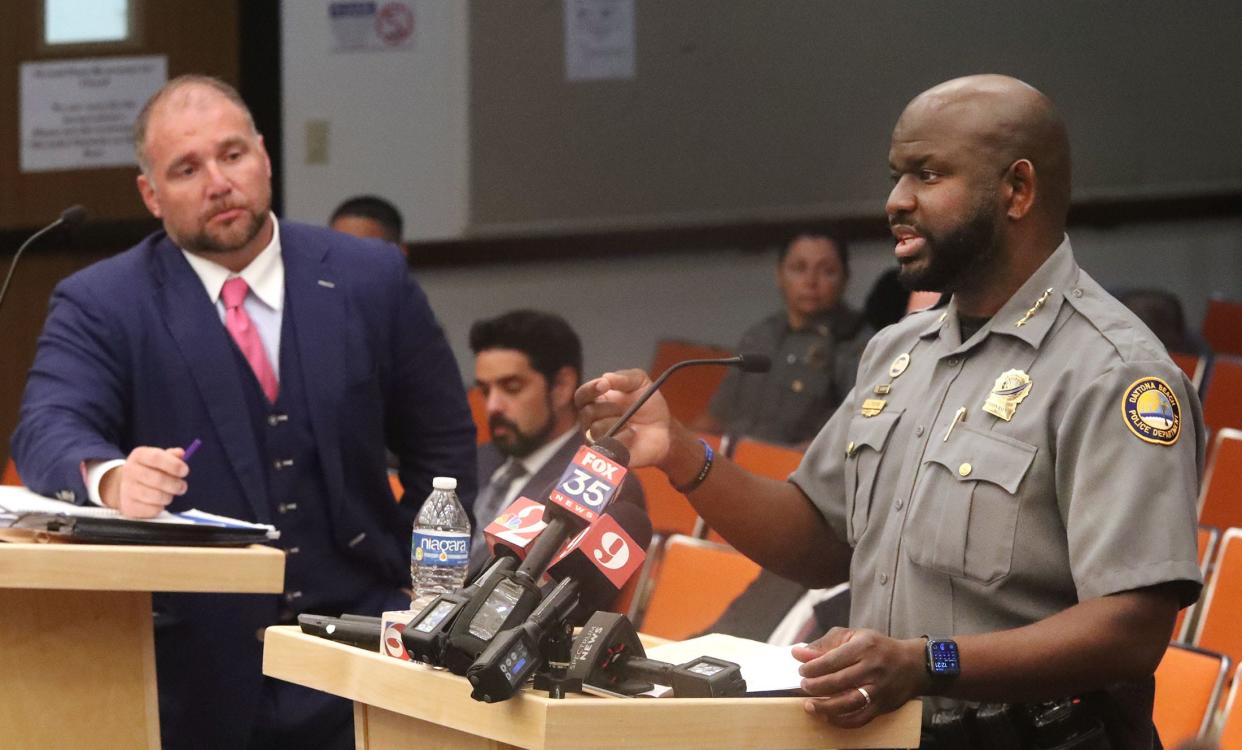
Gross said the citywide measure could also empower the police chief to order a bar to install additional lighting or cameras.
The city attorney also said the draft measure could mandate that extended-hours permit applicants meet with top city staff, and get their permit approved by the city manager and police chief. Now people just fill out applications and await a decision on approval.
The proposed ordinance was also to include a procedure for revoking an after-hours permit if a business has three permit suspensions in one year. Current city code only allows for suspension of an after-hours permit for 30-90 days, and the city can impose restrictions upon reopening.
'Why use a sledgehammer?'
Razzle's two metal detectors each cost between $5,000 and $10,000. The Seabreeze club also chose a state-of-the-art scanner system for identification card checks that will cost at least $30,000 per year.
Several Daytona bar owners said smaller establishments can't afford metal detectors, pricey ID checkers and extra security officers.
Rhonda Harrison manages three Main Street bars: Dirty Harry's, Full Moon Saloon, and the Bank & Blues Club. None of those bars have metal detectors, and Harrison said she doesn't know of any local bars that do.
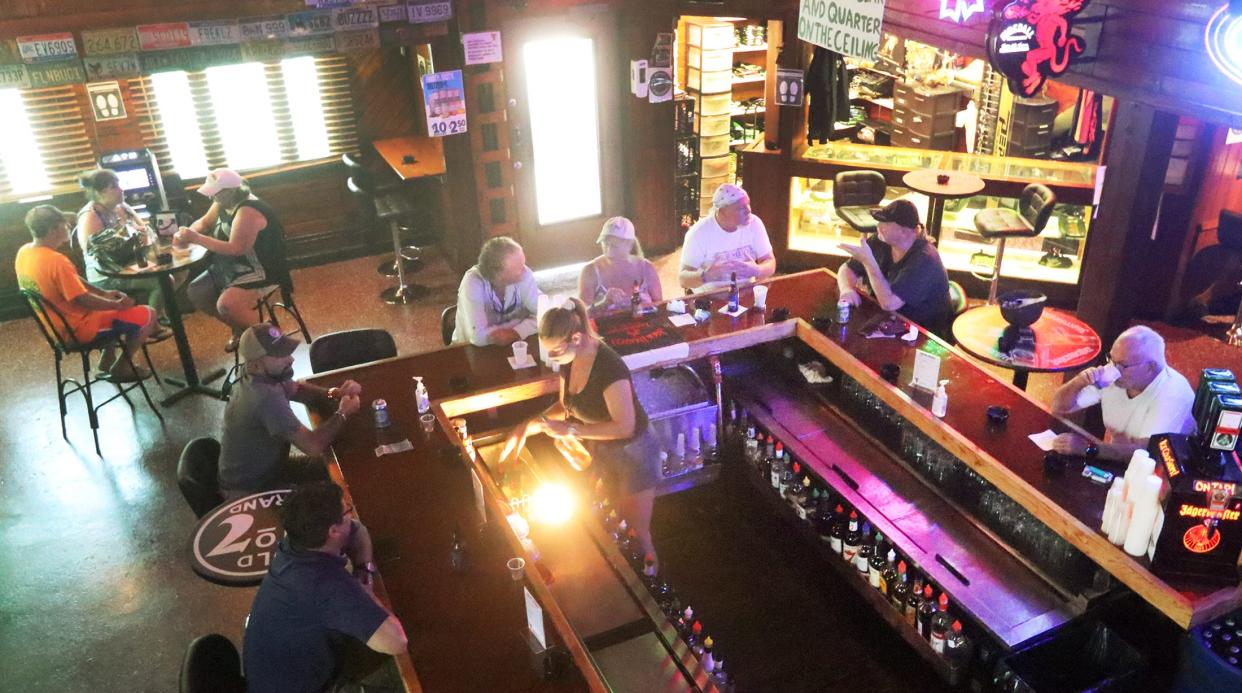
Daytona nightspot owners don't see the need for the changes the city is mulling.
"I never have any trouble at my end of the street," said Kitt, the owner of several Seabreeze Boulevard bars and restaurants.
Tom Caffrey, owner of the World's Most Famous Brewery on Main Street, said he doesn't even use security officers during Bike Week. He said Main Street bars and restaurants have minimal problems with their customers.
"Why use a sledgehammer when you need more of a scalpel?" Caffrey asked.
Caffrey does have an after-hours permit, but he said he usually doesn't stay open past 11 p.m. other than during Bike Week, Biketoberfest, New Year's Eve and the Fourth of July.
He doesn't think small bars like his should be included in new city mandates because he said they're not causing most of the problems.
Daytona bar owners want autonomy, not rules
Honeycutt, the owner of Froggy's on Main Street, said if he had to buy expensive equipment he would have to raise his prices, and that could leave some empty barstools in his tavern.
His bar routinely does ID checks and has security guards every night. Every bar has its own system, and it would be a mistake to regulate everyone the same way, he said.
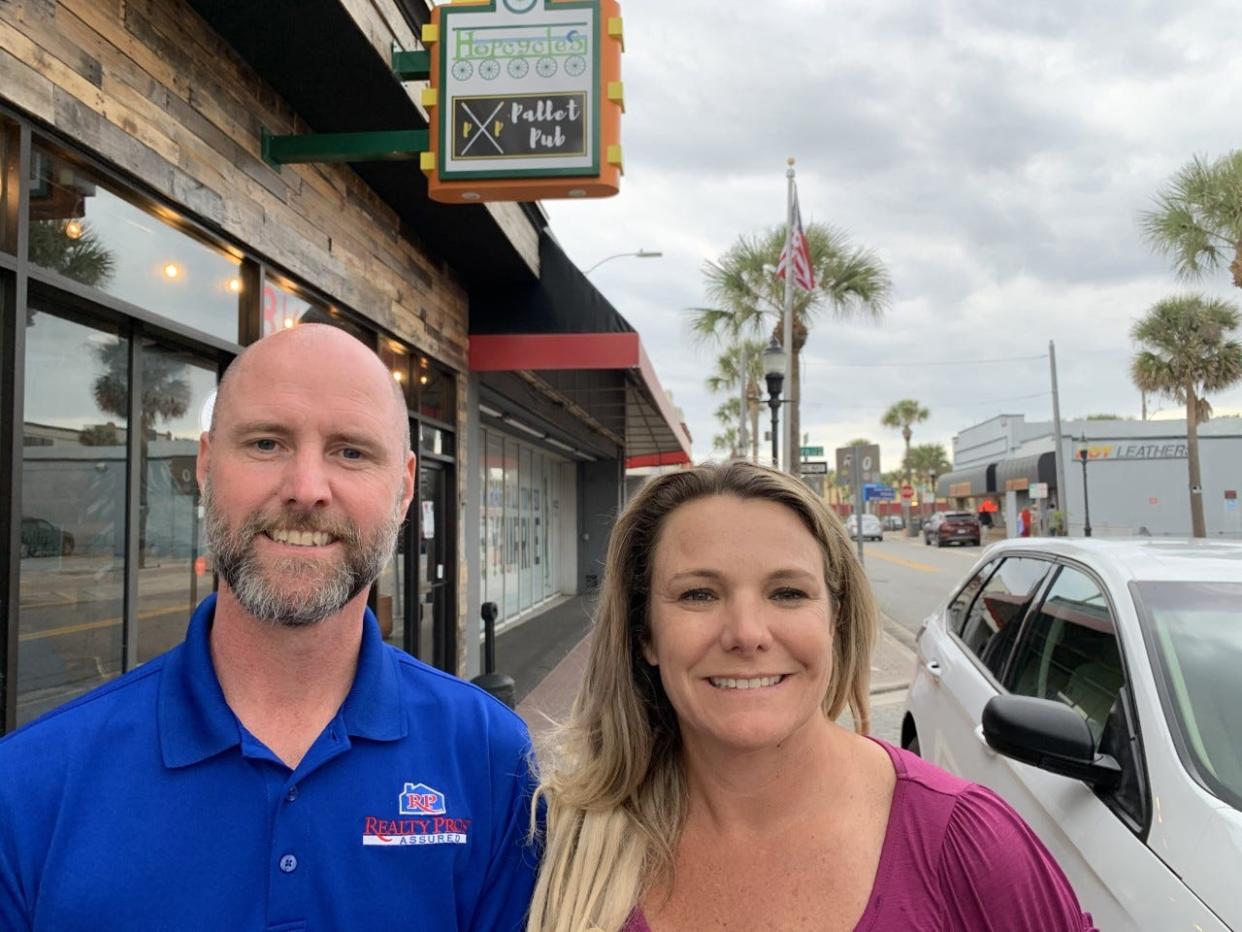
"We should be self-governing," Honeycutt said. "If we screw up, we should pay the price. Why should we all jump through the same hoops?"
He and other Daytona bar owners are still unhappy about the city changing bar closing time from 3 a.m. to 2 a.m. a little over a year ago.
Phillips, the owner of the Irish pub on the beachside, said the continued problems at Razzle's and other Seabreeze Boulevard bars show that closing one hour earlier hasn't helped.
"All you're doing is taking money out of people's hands. You're not getting to the root of the problem," he said.
The suggested changes could force bars to close at midnight to avoid the costs of complying with the after-hours permit regulations, Phillips said. He said he can't afford metal detectors and high-end ID checkers.
He said he has called the police to his bar once in the last five years, and that was just to get a vagrant off of his property.
"It's just insane to punish the whole group when only two bars cause problems," he said.
More about Daytona Beach bar rules: Daytona police chief fed up with crime tells bar owners to 'start coming up with solutions'
Caffrey hopes city leaders settle on something that's less intrusive for most bars, but tackles the weekly late-night problems on Seabreeze Boulevard.
"I think the majority of bar owners know something needs to be done about Seabreeze," Caffrey said. "I hope we'll get something feasible that makes this city a better place."
You can reach Eileen at Eileen.Zaffiro@news-jrnl.com
This article originally appeared on The Daytona Beach News-Journal: Daytona Beach city leaders discuss metal detectors and rules for bars


